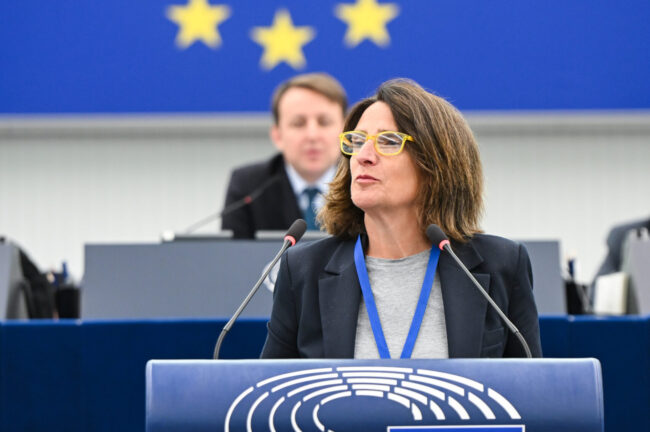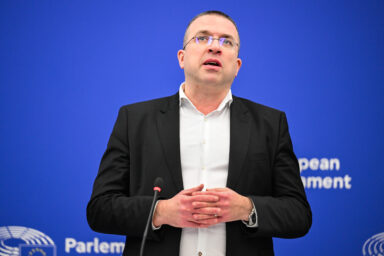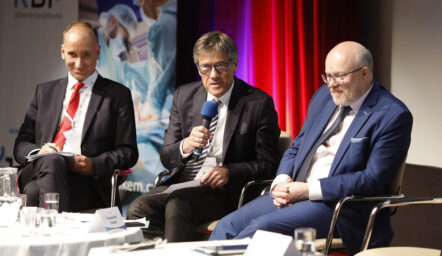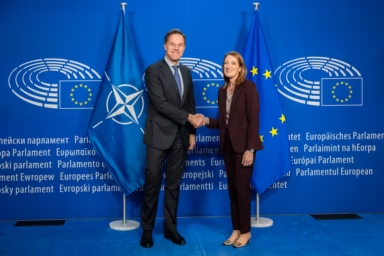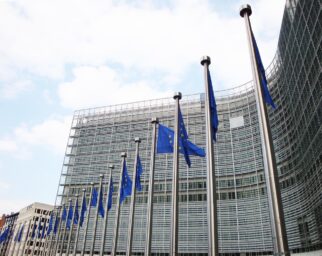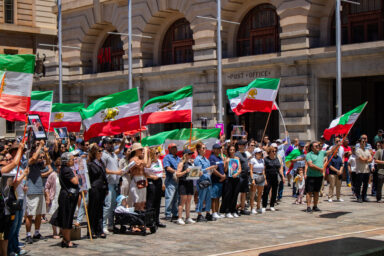The European Commission has fined Eurofield SAS and its former parent company Unanime Sport SAS €172k for supplying incomplete information during the probe. While minuscule in size, the decision is heavy on symbolics.
The European Commission’s investigation into the synthetic turf industry has culminated in a landmark ruling on 8 September—one that underscores Brussels’ growing intolerance for procedural non-compliance. This marked the first time the Union invoked Article 23(1)(b) of Regulation 1/2003 to penalise incomplete responses to information requests.
The case offers a rare glimpse into the mechanics of antitrust enforcement—from dawn raids to leniency programmes—and signals the Commission’s hardening stance on procedural rigour. “Today’s decision marks the first time we fine a company for such a procedural breach in the context of an antitrust procedure,“ EC Vice-President Teresa Ribera said. “We will not hesitate to pursue similar cases in the future to ensure that our investigations are carried out effectively to the benefit of consumers.“
Preliminary move
The investigation began on 7 June 2023, when Commission officials conducted unannounced inspections at synthetic turf companies in multiple EU member states. National competition authorities accompanied them.
Synthetic turf—defined as artificial grass replicating natural grass’s appearance and function—was scrutinised specifically for sports applications. The Commission suspected violations of Article 101 of the Treaty on the Functioning of the European Union (TFEU), which prohibits cartels and restrictive business practices.
You might be interested
These inspections, the Commission stressed, were a “preliminary investigatory step”. They did not imply guilt nor “prejudge the outcome”. Companies retain defence rights, including the right to be heard. The inquiry’s duration, the Commission noted, hinges on case complexity, cooperation levels, and procedural fairness. Leniency programmes remain available: whistleblowers reporting cartels may gain immunity or reduced fines.
Procedural missteps
In June 2023, the Commission sent Eurofield a “simple request for information” about the synthetic turf sector. Eurofield replied, but the Commission later deemed the response incomplete after cross-checking with documents seized during inspections. In October 2023, it issued a binding request under Article 18(3) of Regulation 1/2003—a legal tool compelling companies to provide data. Eurofield’s second reply again omitted details.
By November 2024, the Commission formally investigated Eurofield and Unanime Sport for procedural breaches. The companies then cooperated: they acknowledged liability, submitted omitted documents, and provided “supplementary information” the Commission had not flagged. This cooperation triggered a 30 per cent fine reduction.
We will not hesitate to pursue similar cases in the future to ensure that our investigations are carried out effectively to the benefit of consumers. — Teresa Ribera, Executive Vice-President for Clean, Just and Competitive Transition
“Information requests are a vital tool to uncover antitrust infringements,“ Ms Ribera stressed. “If companies do not provide full and complete replies to our requests, they can compromise our investigations.“
‘At least negligent’
Article 23(1)(b) of Regulation 1/2003 permits fines up to one per cent of a company’s global turnover for “incorrect, incomplete, or misleading information” supplied “intentionally or negligently”. The Commission deemed Eurofield’s breach “at least negligent”. Companies must prepare responses with “utmost care”, it argued. Had Eurofield doubted the request’s scope, it could have sought clarification—a step it avoided despite warnings.
The Commission classified the infringement as “serious”. Information requests are “one of the main investigative tools” in antitrust cases; incomplete replies “seriously hamper” probes. A 0.3 per cent fine on the firms’ combined turnover was deemed “proportionate and deterrent”. The 30% reduction for cooperation brought the total to €172k. Eurofield and Unanime Sport—as parent company at the time—are jointly liable.
This case breaks new ground as the first fine under Article 23(1)(b) for incomplete information. However, the Commission has prior form in penalising procedural breaches. In 2024, it fined International Fragrances and Flavours €15.9m for deleting phone messages during an inspection. In 2008, E.On received a €38m penalty for breaking inspection seals. Suez Environnement and Lyonnaise des Eaux were fined €8m in 2011 for similar seal breaches.
Ongoing investigation
The cooperation procedure here mirrors the EU’s cartel-settlement framework. Companies admitting liability for antitrust breaches—including procedural ones—can secure faster resolutions and fine reductions. The Commission lauds this model for simplifying procedures while rewarding transparency.
The synthetic turf antitrust probe remains active—a separate process from the procedural fine. Sports-grade synthetic turf, the investigation’s focus, is a niche but growing market. The Commission has not disclosed which “capabilities” or firms are under scrutiny, nor when it will conclude.
If companies do not provide full and complete replies to our requests, they can compromise our investigations. — Teresa Ribera
Unannounced inspections, while dramatic, are merely step one. The Commission must now reconcile conflicting evidence, assess market impact, and determine if Article 101 violations occurred. Leniency applications could accelerate this—if any participant confesses. For now, the industry faces uncertainty. Producers, suppliers, and sports bodies await clarity on whether price-fixing or market-sharing occurred.
Three lessons
The Eurofield case offers three lessons for companies navigating EU probes. First, procedural compliance is non-negotiable. The Commission treats incomplete responses as seriously as cartel conduct—a shift underscored by this precedent. Second, cooperation pays. Eurofield’s 30% reduction mirrors leniency incentives, creating a blueprint for firms caught in procedural missteps. Third, parental liability looms large. Unanime Sport’s joint fine—despite being a parent company—shows the EU’s willingness to pursue corporate hierarchies.
The Commission’s rhetoric reinforces this rigor. In its 8th September decision, it stressed that information requests’ effectiveness “is largely dependent on complete and accurate responses”. Firms cannot plead ignorance: the onus is on them to seek clarity if requests confuse them.
For the synthetic turf sector, the probe’s outcome could reshape market dynamics. If the Commission uncovers cartel activity, fines may dwarf Eurofield’s €172k penalty. Past cartel cases have seen fines exceeding €1bn. Even absent cartel findings, the procedural ruling signals tighter oversight. Companies must now audit compliance protocols—training staff to handle information requests, securing legal reviews, and pre-empting parental liability risks.
Modern enforcement
For the Commission, the case burnishes its enforcement credentials. By flexing Article 23(1)(b), it deters procedural obfuscation while testing new cooperation frameworks.
The synthetic turf saga—spanning dawn raids, procedural fines, and ongoing antitrust scrutiny—encapsulates modern EU enforcement. Brussels wields tools from unannounced inspections to parental liability, balancing punitive fines with cooperation incentives. For companies, the message is clear: procedural compliance is as critical as legal compliance. Omit a document, delete a message, or breach a seal, and the Commission will notice—and punish. In the high-stakes world of EU antitrust, even artificial grass can prove slippery.
